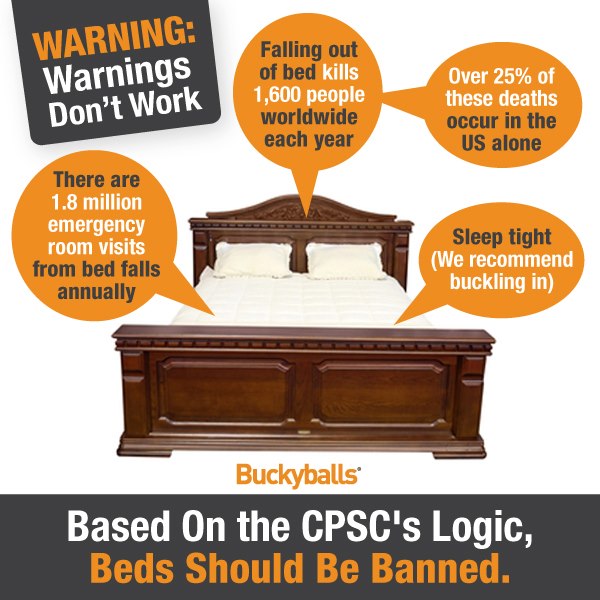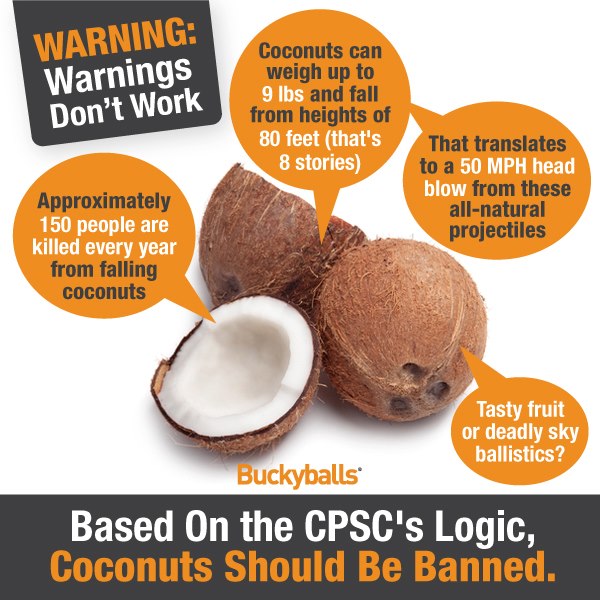Buckyballs Dies, Fight Against CPSC Continues
Several weeks ago, we here at Abnormal Use lamented the death of Buckyballs, the controversial desktop magnet, after its two year fight with the Consumer Product Safety Commission (“CPSC”). The Buckyballs saga grabbed our attention from the outset after Buckyballs’ CEO Craig Zucker publicly ridiculed the CPSC’s draconian measures. As traditionally harsh critics of the CPSC, we applauded Zucker’s efforts and were saddened when Zucker finally succumbed to the CPSC back in May.
Little did we know, there still remains a ring bearer in the Fellowship of Magnets.
According to a report from Reason.com, Colorado-based Zen Magnets continues to fight against the CPSC over the right to manufacture and distribute spherical magnets. Shihan Qu of Zen Magnets described to Reason his ongoing fight as follows:
I have two very distinct but related motives for continuing this fight.
The first one is obvious. I want to win. I want to keep selling magnets. I want to continue seeing the passion, joy, and inspiration they bring. I want to stay in business. I want to see a victory for magnets.
But number two, I want the CPSC to LOSE. I really really want them to lose. They need some humility and to be reminded of the standard of liberty in this country.
The single biggest issue that must be challenged, the aspect that makes this a landmark case, is that this is the first time the CPSC is arguing that warnings don’t work, which has incredibly vast policy implications. Putting warnings on this is mostly what the CPSC does. Small parts, choking hazards, etc.
Warnings are a sort of agreement a customer accepts upon use of a product. And by assuming that people cannot follow — by the way, there is still nobody who can confirm even a single Zen Magnet ingestion incident — instructions to keep magnets away from children and mouths, they are assuming the American Population is not capable of deciding for themselves. They are taking your right to consent, and fleecing your freedom to do as you will.
We’re the last line of defense, and if Zen Magnets doesn’t stand up, the CPSC gains a remarkable amount of power from consumers. They show the ability to determine behind their closed walls, what America can and can’t have, despite roaring public opposition. They set the precedence of creating an all-ages, nation-wide ban, with the assumption that an American cannot be “expected” to understand or follow warnings.
We must applaud Zen for continuing the sojourn. We are particularly intrigued by the company’s thoughts on product warnings. While we do not believe that a warning label should grant a license to sell any product, we, too, have often questioned why the CPSC had problems with these magnets despite what appears to be appropriate warnings. In this case, the CPSC seems to belittle our sense of free will and decision-making at the expense of these companies. Regulation can serve its purpose, but it shouldn’t deprive us of our own ability to self-govern. Unfortunately, we fear Zen will ultimately share a similar fate with Buckyballs. Nonetheless, we applaud its efforts.



















